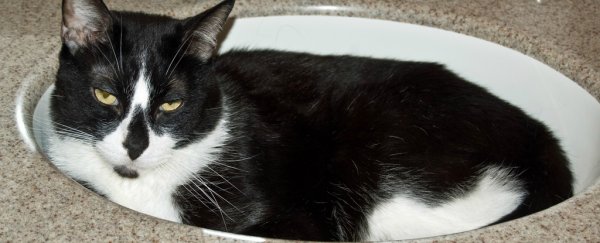We all want to understand our pets better, and this year science has already helped us figure out that our cats don't really need us (no surprises there), and that our dogs can recognise our faces and miss us when we're gone.
Now researchers in the UK have found evidence that domestic cats are more neurotic and controlling than we might think, and we're probably freaking them out with all our attention.
The study compared the personalities of domestic cats with other big cats in captivity, including African lions and snow leopards. They showed that domestic cats have very similar personalities to lions, with their strongest traits being dominance, impulsivity, and neuroticism.
But a quick fact check is needed here because a few headlines have declared that this study means that your cat wants to kill you, which isn't the case (well, at least we hope not). And the research was also conducted on domestic cats kept in shelters, which doesn't necessarily represent the mindset of all pet kitties.
What the study does mean is that we don't necessarily understand our cats as well as we think we do. "Cats don't want to bump you off," lead researcher Marieke Gartner, from the University of Edinburgh, told Chris Matyszczyk over at CNET. "But people often don't know how to treat them and then are surprised by their behaviour."
After studying 100 domestic cats at two different shelters, the researchers mapped their behaviour along the 'Big Five' human personality aspects, which are: Openness to Experience, Conscientiousness, Extraversion/Introversion, Agreeableness, and Neuroticism.
They also went into zoos around the world and monitored the behaviour of clouded leopards, snow leopards, African lions, and Scottish wildcats.
The results showed that all of these cat types, regardless of size, had pretty similar personalities. "Across the five felid species we assessed, personality structure was strikingly similar," the researchers conclude in the Journal of Comparative Psychology.
And when they looked into the neuroticism trait of domestic cats more, they found "the highest loadings on anxious, insecure, and tense, suspicious, and fearful of people".
But before you start backing away from your purring kitty slowly so as not to make the poor guy more stressed out, there are some limitations with the study that we should flag.
For starters, it only looked at cats in captivity, which introduces a whole lot of bias. And the researchers rated cats according to human personality traits, which may not necessarily fit in with the feline structure.
We also need to remember that cats, like humans, are individuals.
"Cats have different personalities, and they ended up living with us because it was a mutually beneficial situation," said Gartner. "Some cats are more independent, some are quite loving. It just depends on the individual. It's not that cats are self centred. It's that they are a more solitary or semi-solitary species."
So don't worry, your cat doesn't hate you, and it's probably not trying to kill you. But it does seem to have more in common with big cats than we sometimes think. So maybe it wouldn't hurt to not force it to wear ridiculous costumes, and let it come to you once in a while.
